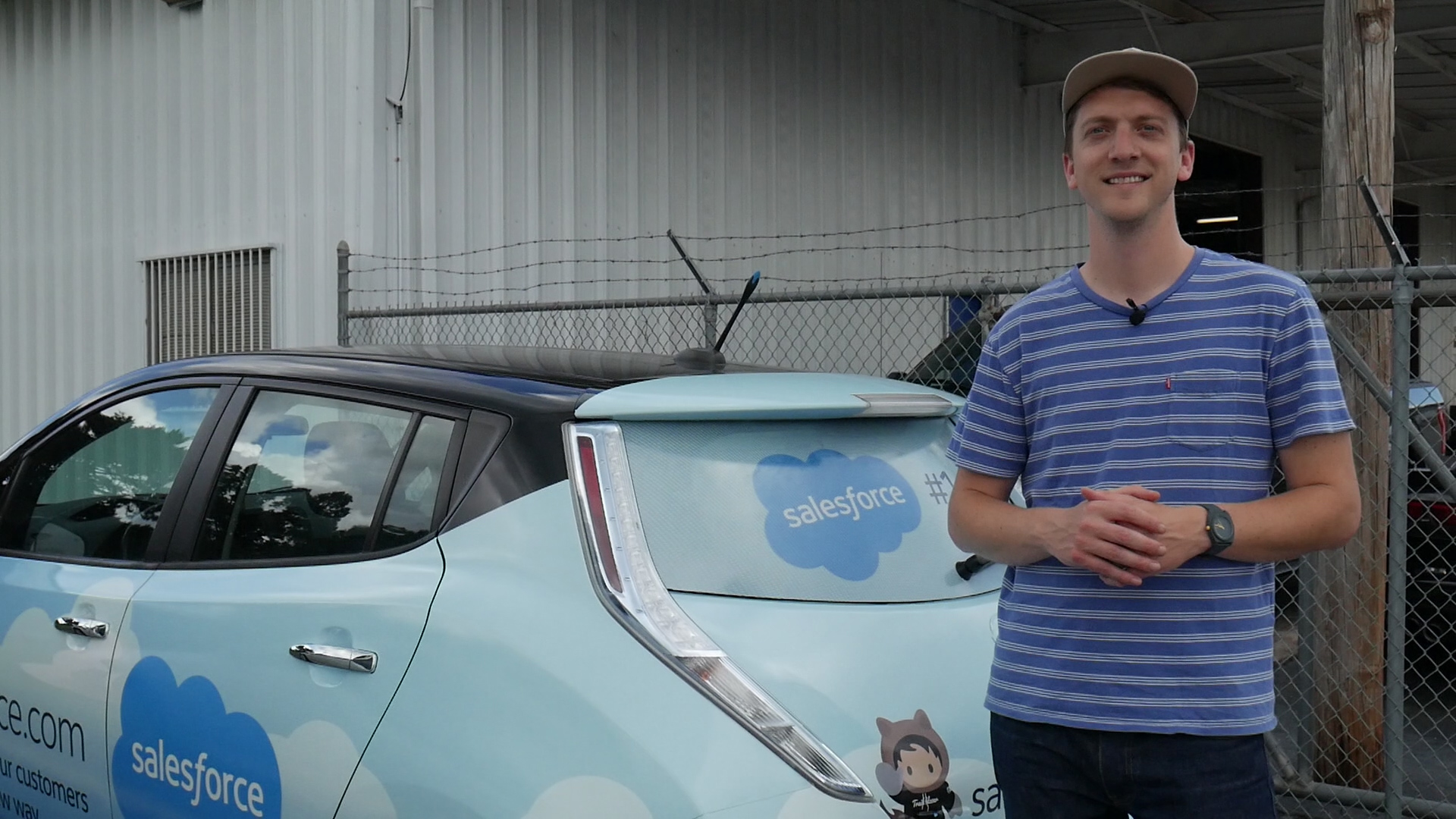It’s no surprise that commuting costs the average American quite a bit of money. A survey of over 3,000 people found that workers spend an average of $3,300 per year getting to work, though this figure includes more than just car expenses and gas.
As far as time is concerned, over 13 million Americans spend at least an hour in the car driving to work, while 4 million Americans spend 90 minutes or more one-way, which is equivalent to one full month a year! The average American currently spends nine full days on the road, which could be a full week and a half vacation.
And money and time aren’t the only considerations when it comes to commuting. There’s also the health factor, including time spent sitting and less time in a day to exercise. According to a study Clark read about in the The American Journal of Preventive Medicine, “[Commuting] doesn’t just take hours out of your day, but could also take years off your life!â€
If you find yourself in a quandary when it comes to your commute, here are ten ways to save on your journey to work.
RELATED: This is taking a $3,300 bite out of your paycheck every year
Save money, time and reduce stress with these commuting options
1. Rideshare
It’s something that can be tough to coordinate, but ridesharing is one great way to save money on driving to work. Some cities even offer cash incentives for carpooling. When you share the load of driving, you can spend the time working on the days when you’re a passenger instead of having to keep your eyes on the road!
2. Ride a bike
If you live close enough to work to ride a bike, it offers several benefits! One is the money you’ll save by using your bike instead of driving a car, and two is the health benefits of staying active.
Radio producer Joel rides his electric bike into work when the weather is good, and says the money savings and health benefits are hard to beat. REI sometimes offers 20% off these electric bikes, which is a big discount!
RELATED: Electric bikes offer cheap, sweat-free commute
3. Drive an economy car
This one is kind of a given, but do you know exactly how much you’re saving when you drive an economy car?
My husband used to work in automotive sales, and people would be so upset when they learned the replacement cost of their luxury car’s headlight. Expensive cars aren’t just expensive on the front end — they’re expensive no matter which direction you turn! Generally speaking, less expensive economy cars are less expensive to keep on the road and maintain. Clark has a list of the top cars that are most likely to last 200,000 miles or more.
In addition, when shopping for a new-to-you car, Clark says the sweet spot of value is buying a 2-year-old used car.
RELATED: How to buy a used car
4. Go green
It’s no secret that Clark has been a champion for electric cars, first with his Nissan Leaf, and then with his Tesla. (Clark now owns the most economical of the Tesla models: The model 3, which starts at $35,000 before incentives.)
Though the cost of an electric car may not immediately pay off, over time and after tax incentives, an electric car may be an economical alternative, since you won’t have to worry about spending so much money on gas.
5. Look for gas at cheaper gas stations
Clark has been a fan of the app Gas Buddy, which can tell you the best price on gas nearby. If you’re a member of a warehouse club like Costco, Sam’s Club or BJ’s Wholesale, these stores are known for cheaper prices on gas. In addition, grocery stores and gas stations also offer loyalty programs to help you save.
RELATED: 5 ways to save money on gas
6. Take public transit
If there are any public transit options in the city where you live, these might be worth checking into. Theo, longtime writer on our team and coauthor of Clark’s books will often take the bus into work since he lives so far away. The savings in gas, car upkeep and maintenance is tremendous!
7. Wrap your car
If you do have a long way to go and you don’t really care what your car looks like on the outside, getting your car wrapped might be a good way to make money while you’re driving on your commute. A company called Wrapify has an app you can download to track your driving habits and offers you advertising campaigns based on your driving data.
Producer Joel got his car wrapped and gets paid for every mile!

RELATED: Car wrapping makes a comeback
8. Telecommute
Since so many jobs nowadays can be performed via the internet, there may not be a need for people to go into the office and instead work remotely. Although camaraderie with your fellow coworkers is important, studies have shown people to be more efficient working at home during the week. This is in addition to the time saved by not having to commute to work! Clark says that if more companies employed telecommuting, it might put a dent in traffic problems in many metropolitan areas.
If your job is able to be performed at home, why not ask your boss if you could telecommute one day a week. This will cut down on your drive time, and improve your productivity!
9. Take a work-from-home job
Though working from home once or twice a week is a nice idea, what about working from home all the time? If the drudgery of driving into work has you down and you’re looking for a change, you might want to consider work from home opportunities. See a full list and how to get started here.
RELATED: Work from home: Top 100 companies with remote jobs in 2018
10. Move closer to work
This one is a given, but it comes with a huge caveat: You might have to downsize to realize the savings, and you’ll have to do the math for your particular situation to be able to know for sure if it will be more cost effective for you to move closer to work. Considerations such as how much you make, whether or not you have kids, and intangibles like where most of your family and friends live, your health and the part of town you generally enjoy all play a major role, so it’s not a purely financial decision.
For my husband and I, we realized it would cost us three times as much to live close to my job, and he works close to where we live. When I did the math for our situation, I realized we would save over $100 a day commuting over a 20-year period, after factoring in car expenses!
A final thought
Though not all of these ideas are suitable for every situation, some of them might save you dollars and make more sense. A great deal depends on your lifestyle and the kind of work you do, in addition to non-monetary factors such as stress level, where you want to live, and where your family and friends reside. But, if you take a hard look at your situation and run the numbers, you just might be able to save some big money by employing one or more of these options!
Best of the Week
-
The best deals on laptops right now
-
Here are the best Walmart deals happening now!
-
16 of Clark Howard’s favorite deals
-
The best deals at Amazon right now!
-
125+ of the most useful items that can make life easier
-
18 eco-friendly items you can reuse instead of buying over and over
-
The best deals of the Lowe’s Spring Fest Sale!
-
The best deals of The Home Depot’s Spring Black Friday Sale
-
The best deals on grills right now

